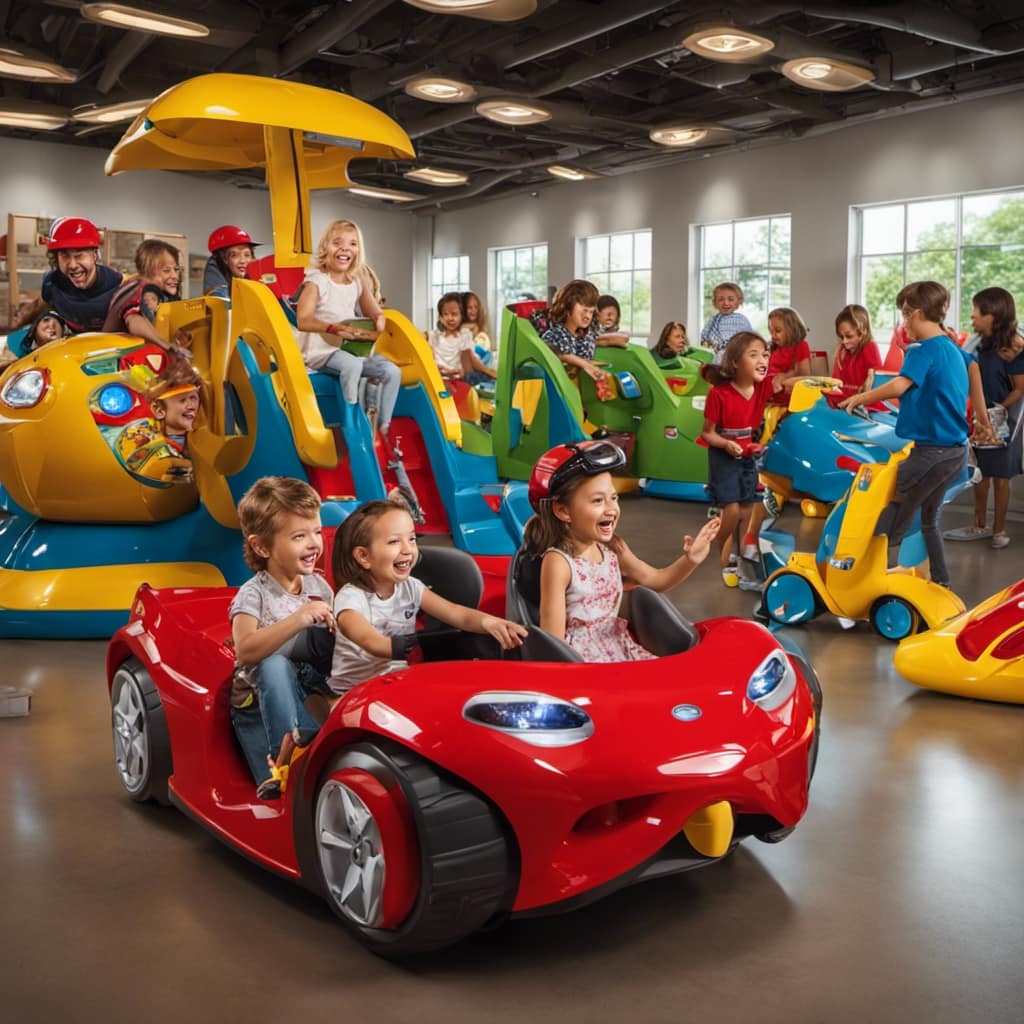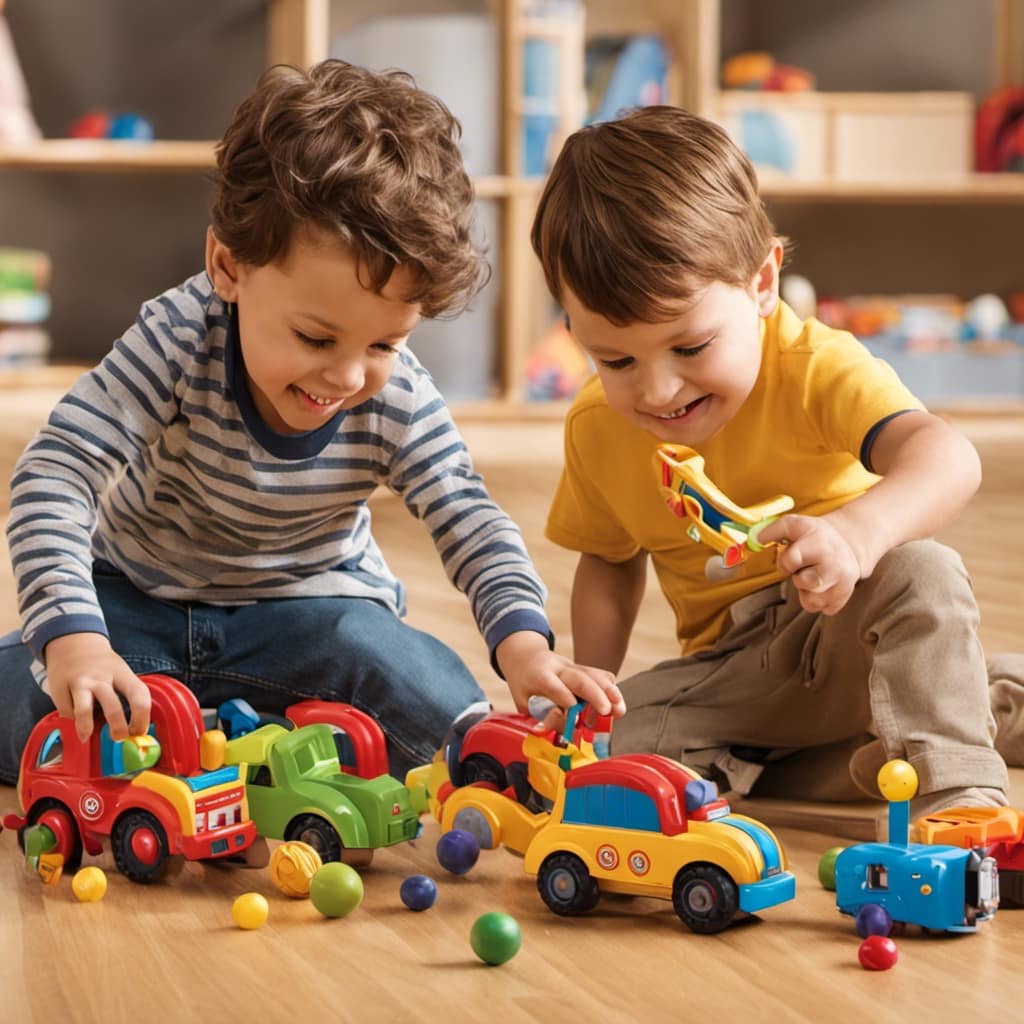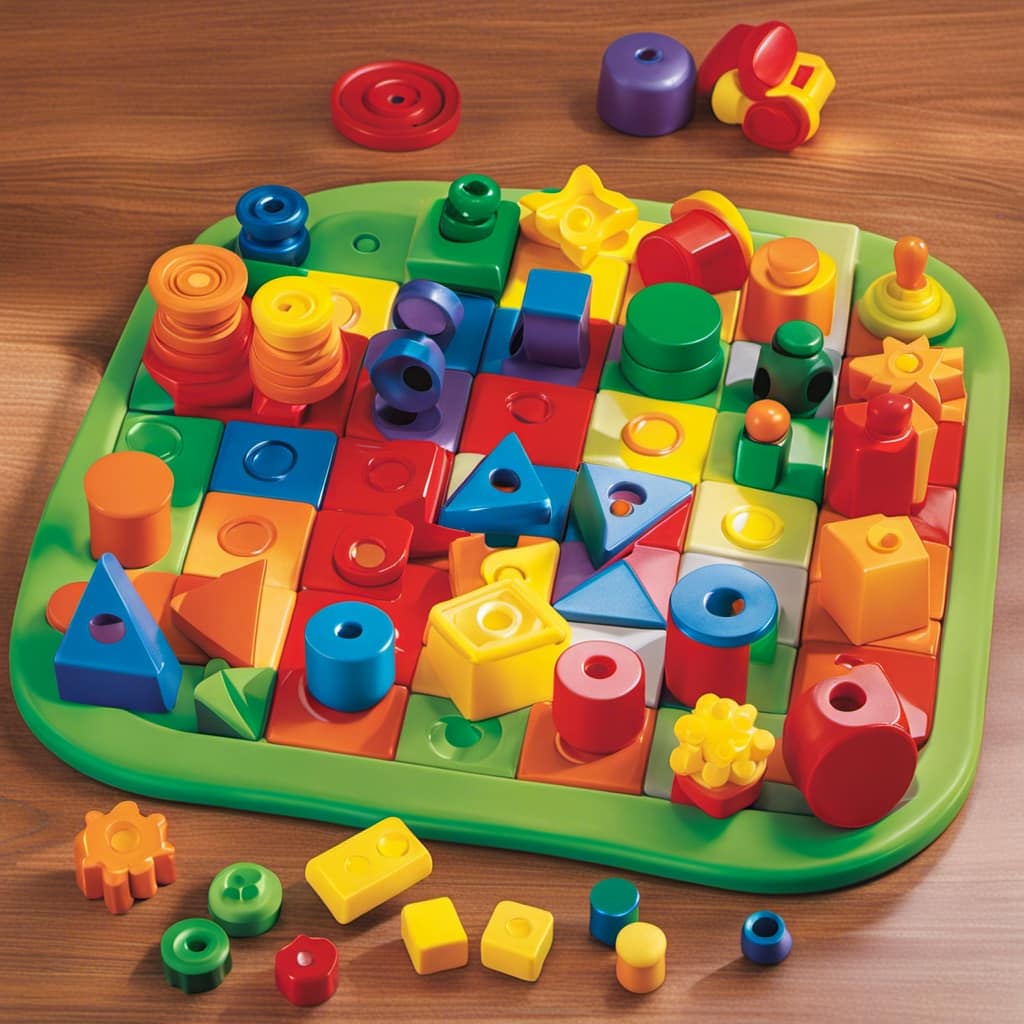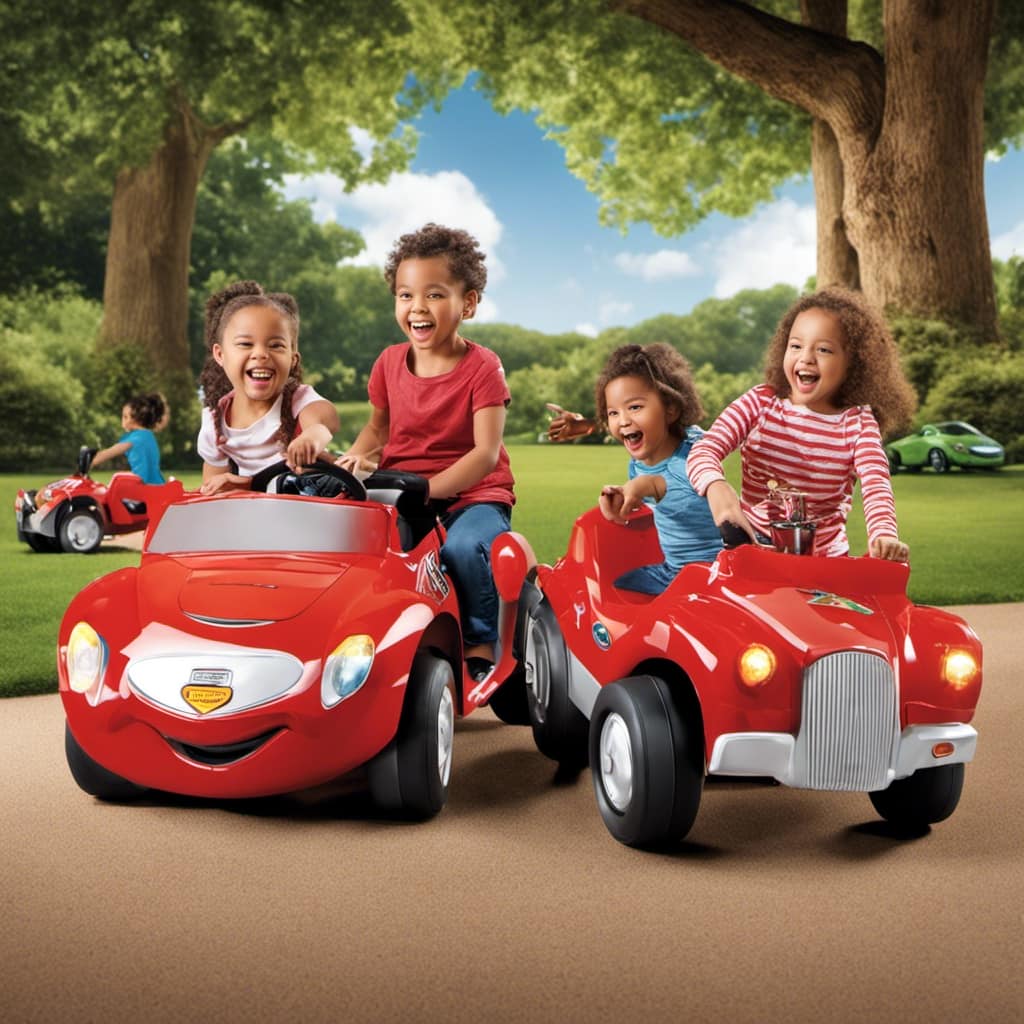I have always believed that play is extremely important, especially in early childhood education. Toys are not just for fun; they are essential tools for development and learning. Playing helps children unleash their creativity, overcome obstacles, and improve their social skills.
Different types of toys cater to various aspects of a child’s growth, from enhancing motor skills to providing educational value in subjects like math and language.
In this article, we’ll dive into the benefits of play-based learning and how toys can shape a child’s overall development.
Key Takeaways
- Toys play a crucial role in a child’s preschool education, providing numerous benefits for young children.
- Play-based learning helps develop important skills and knowledge for future education, stimulating creativity, problem-solving abilities, and social skills.
- Imaginative play allows children to explore creativity, develop problem-solving skills, express thoughts and feelings, and promote critical thinking and collaboration.
- Toy play enhances motor skills development through physical activity, refining fine motor skills, enhancing problem-solving abilities, developing spatial awareness, and strengthening hand muscles.
The Importance of Play in Preschool Education
Play is a vital component of preschool education as it fosters important skills and knowledge for future learning. Research has shown that play plays a significant role in cognitive development. When children engage in play, they are actively using their brains to explore, problem-solve, and think critically. Play-based learning provides opportunities for children to develop their cognitive abilities, such as memory, attention, and language skills.
Additionally, play has a profound impact on socialization skills. Through play, children learn to interact with others, take turns, and share. They also learn important social skills, such as empathy, cooperation, and communication. Play allows children to practice and develop these skills in a safe and supportive environment.
Exploring the Benefits of Play-Based Learning
I find that incorporating play-based learning in early childhood settings offers a multitude of advantages for young children.

The role of play in cognitive development is crucial. When children engage in play, they are actively exploring and manipulating their environment, which stimulates their brain development. Through play, children develop problem-solving skills, critical thinking abilities, and creativity.
Play also has a significant impact on social interactions. It provides opportunities for children to interact, cooperate, and negotiate with their peers. They learn valuable social skills such as sharing, taking turns, and empathy. Play-based learning creates a positive and supportive environment for children to develop their social skills.
Overall, play-based learning not only promotes cognitive development but also enhances social interactions, making it a valuable approach in early childhood education.
Enhancing Learning With Educational Toys
Using educational toys in early childhood settings has been shown to enhance learning and promote cognitive development. Play is an essential aspect of a child’s development, and when combined with educational toys, it becomes a powerful tool for learning.
Cognitive development through play occurs as children engage in activities that challenge their thinking and problem-solving abilities. Educational toys provide opportunities for children to explore, experiment, and make connections.
These toys also play a significant role in enhancing language skills. Through play, children can develop vocabulary, practice communication, and expand their understanding of language concepts. Educational toys that encourage storytelling, role-playing, and interactive conversations can greatly enhance language development.

Nurturing Creativity and Problem-Solving Skills Through Play
Nurturing creativity and problem-solving skills is essential for a child’s development, as it encourages exploration and critical thinking. Play is a powerful tool for fostering these skills, and toys play a vital role in the process. Through play, children can engage their imagination and enhance their problem-solving abilities. Toys that encourage imaginative play, such as building blocks or pretend play sets, provide an opportunity for children to explore different scenarios and come up with creative solutions. This type of play also fosters critical thinking as children are challenged to think outside the box and find innovative ways to solve problems. By providing children with toys that encourage imagination and foster critical thinking, we can support their overall development and prepare them for success in the future.
| Toy Type | Benefits |
|---|---|
| Imaginative Play | – Encourages creativity |
| – Enhances problem-solving skills | |
| – Promotes critical thinking | |
| – Fosters collaboration | |
| – Prepares for future learning | |
| Educational Toys | – Enhances knowledge in various subjects |
| – Supports hands-on and interactive learning | |
| – Develops language and math skills | |
| – Stimulates curiosity and love for learning | |
| Motor Skills Toys | – Improves physical coordination |
| – Refines fine motor skills | |
| – Enhances problem-solving abilities | |
| – Develops spatial awareness | |
| – Strengthens hand muscles | |
| Social and | – Helps develop social skills |
| Emotional Toys | – Provides a safe environment for emotional expression |
| – Supports emotional regulation | |
| – Shapes overall emotional growth |
Developing Motor Skills Through Playful Activities
Engaging in playful activities helps me refine my motor skills and improve my physical coordination. Outdoor play is particularly effective in promoting physical development. Running, jumping, and climbing on playground equipment all contribute to the development of gross motor skills. These activities enhance strength, balance, and coordination.
Additionally, sensory play is an excellent way to stimulate fine motor skills. Playing with sand, water, or playdough allows me to manipulate objects using my fingers, improving hand-eye coordination and dexterity. Sensory play also encourages creativity and problem-solving abilities.
By engaging in activities that involve squeezing, gripping, and manipulating objects, I am strengthening my hand muscles and refining my fine motor skills.
Overall, playful activities provide a fun and effective way to develop and enhance my motor skills.
Toys as Tools for Social and Emotional Development
Playing with different types of toys has helped me develop important social and emotional skills. The role of imaginative play in social development is significant. When children engage in imaginative play, they create scenarios, take on different roles, and interact with others. This kind of play allows them to practice social skills such as communication, cooperation, and empathy. It also fosters their creativity and problem-solving abilities.

The impact of toy selection on emotional growth cannot be underestimated. Toys provide a safe environment for children to express their thoughts and feelings. They can act out different scenarios and learn to regulate their emotions. For example, playing with dolls or stuffed animals can help children explore and understand various emotions. Moreover, toys that encourage collaboration and teamwork, such as building blocks or board games, promote social interaction and emotional development.
Frequently Asked Questions
What Are Some Specific Examples of Toys That Can Enhance Problem-Solving Skills in Preschoolers?
Toys like building blocks, puzzles, and problem-solving games can enhance problem-solving skills in preschoolers. They encourage critical thinking, logical reasoning, and spatial awareness, fostering cognitive development in early childhood.
How Does Play-Based Learning Help Children Develop Their Language Skills?
Play-based learning is crucial for developing language skills and cognitive abilities. It fosters communication, vocabulary, and grammar development. Through play, children engage in meaningful interactions, storytelling, and role-playing, enhancing their language proficiency and cognitive growth.
What Are Some Ways That Toys Can Be Used to Promote Collaboration Among Preschoolers?
Toys can promote collaboration among preschoolers by encouraging teamwork and promoting social skills. Through cooperative play, children learn to work together, share ideas, and communicate effectively, fostering a sense of community and cooperation.
Can You Provide Examples of Toys That Specifically Target the Development of Fine Motor Skills?
Toys that target fine motor skills include building blocks, puzzles, and threading beads. These toys help children develop hand-eye coordination, dexterity, and problem-solving skills while having fun and engaging in play-based learning.
How Can Toys Help Children Learn to Regulate Their Emotions?
Toys can help children learn to regulate their emotions by providing a safe and interactive way to express feelings. Play-based activities promote social skills, empathy, and self-awareness, fostering emotional growth in preschoolers.

Conclusion
In conclusion, the power of play and toys in preschool education is undeniable.
Through play, children are able to engage in a fun and interactive learning experience that promotes their overall development.
From enhancing creativity and problem-solving skills to developing motor skills and fostering social and emotional growth, toys play a vital role in shaping a child’s educational journey.
So, let’s embrace the magic of play and continue to provide children with the tools they need to learn, grow, and thrive.
After all, as the saying goes, ‘A child’s play is a child’s work.’










